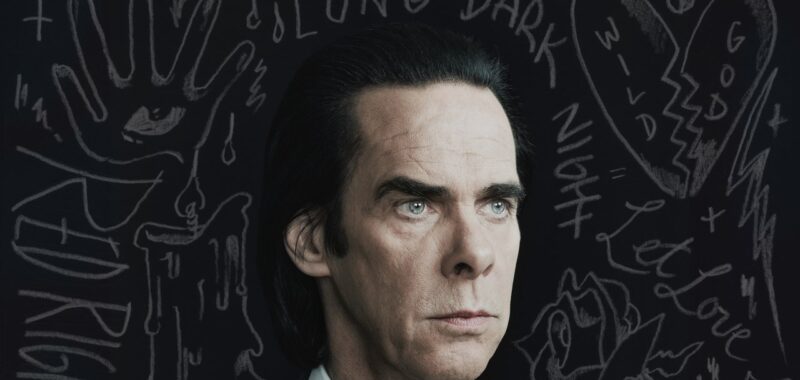It’s easier to define what you’re not than what you are. But I think through reading The Red Hand Files you seem to be fundamentally optimistic about things. Would you agree?
I think what I try to put forward is the idea that we need to open our eyes and see what’s on offer now. Michael Oakeshott was a philosopher and he talks of present laughter over utopian bliss. That is that we try to find something that we already have, over constantly agitating and wanting something better in the future.
Soothe yourself with what is here?
At least be alert to what is here. Not that things don’t need to change. That feels like what The Red Hand Files, at least sort of temperamentally, is about. And that is that what we have here is beautiful. I know it’s a radical, controversial thing to say. And that doesn’t mean that I don’t understand there are huge problems in the world—there’s just much beauty too.
I think on some level despair, or total despair, is a kind of blindness, in a way. Despair on some level, even grief on some level, ultimately there’s a choice to be made about what you do with that feeling. You’re not just a complete victim to it. You are at the start because it’s so overwhelming—it’s awesome how massive the whole thing is. But at some point you have a choice as to how you’re going to view the world. And there are some people that are perpetually pathologically dissatisfied with the present moment, and it needs to constantly change. It needs to constantly be better. And I guess what The Red Hand Files is trying to say is that the world is, of itself, systemically beautiful and it can’t help but be so. If we pay attention.
The main criticism that I get is that I’m a coward because I don’t talk about certain hot political topics. Mostly. Mostly. And the reason I don’t is not because I don’t have views on these sorts of things, but I’m attempting to protect the idea of The Red Hand Files in and of itself. It’s not a platform for me to present my fucked-up political opinions, whatever they may be.
How does Susie feel about you being so open? Has there ever been a tension where she’s said, “Can you not…”?
Yeah, there’s a gentle tension. Occasionally, I’ll say ‘Oh my God, babe, that’s the most beautiful thing, that is so wonderful,’ and she’ll be like, ‘How about we don’t do a Red Hand File about it?’ [Laughs.] Because she is very different. She is an extremely private person. And she doesn’t like to talk openly about these sorts of matters. But she also understands that it’s my way, and the way I’ve learned to be able to deal with these sorts of things is to be open about it. I’m just unable to be anything else, in a way. It’s just not in my nature.
But you weren’t always like that, were you?
Maybe I was sort of surly, but it’s not that I had anything to hide. I would talk openly about drugs and all of that sort of stuff. I just don’t think I had that much to…. I don’t know. I’ve found that being able to articulate or use language around my feelings has been really helpful. My relationship with Arthur is something I keep alive through talking about it.
You’ve spoken a lot about grief. But how do you think we should reckon with our own mortality?
I don’t have many feelings one way or the other about what happens to us. I have intuitions that there’s more to things than meets the eye. I have intuitions too about the presence of others, even though that’s kind of whispered at its loudest, if you understand what I mean. I hope that I die sort of looking into life—in that direction—rather than staring at death. That I’m with my wife, one way or the other, and we’re looking at each other. That would be one way to go. Sort of falling backwards.

